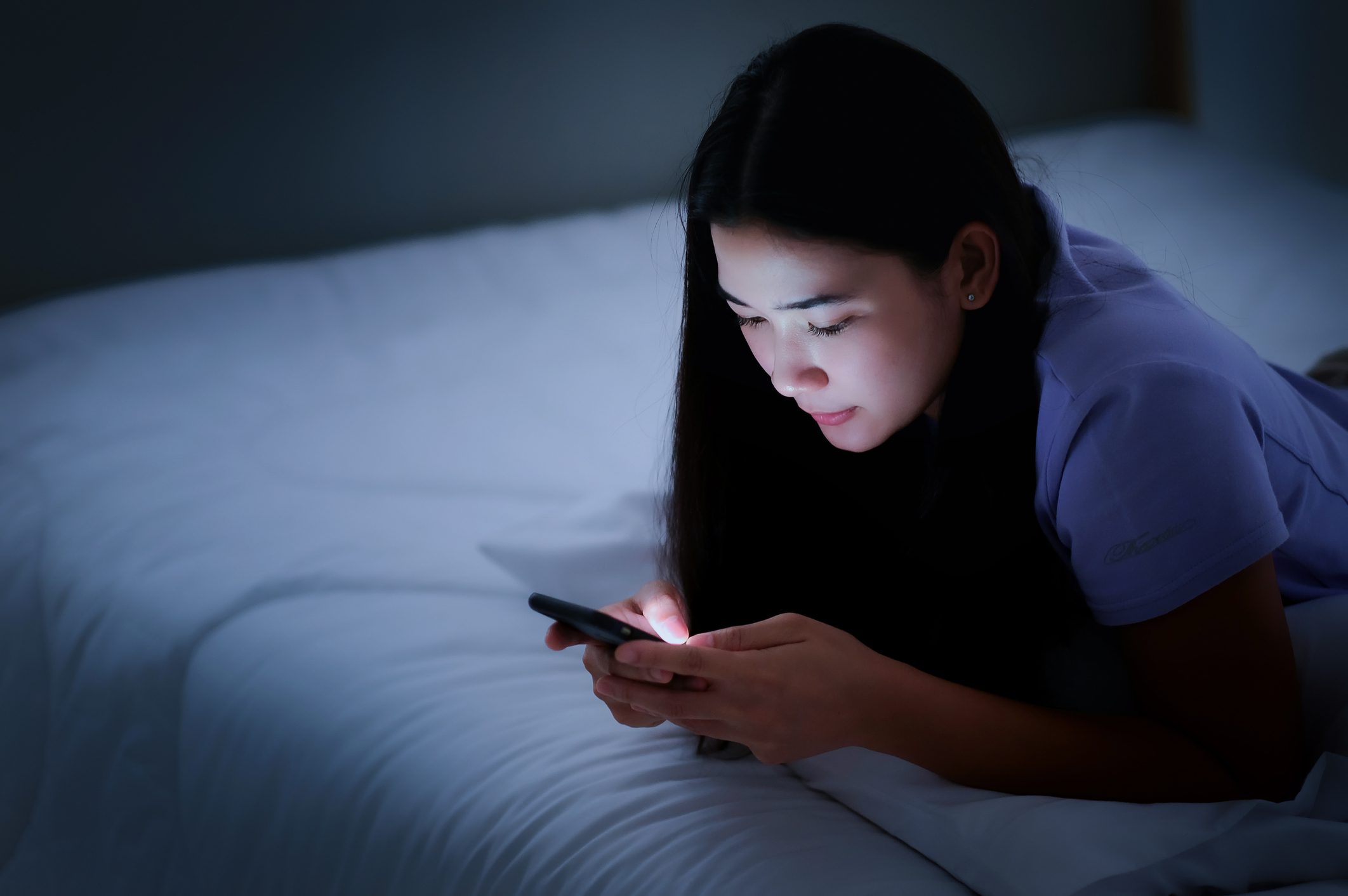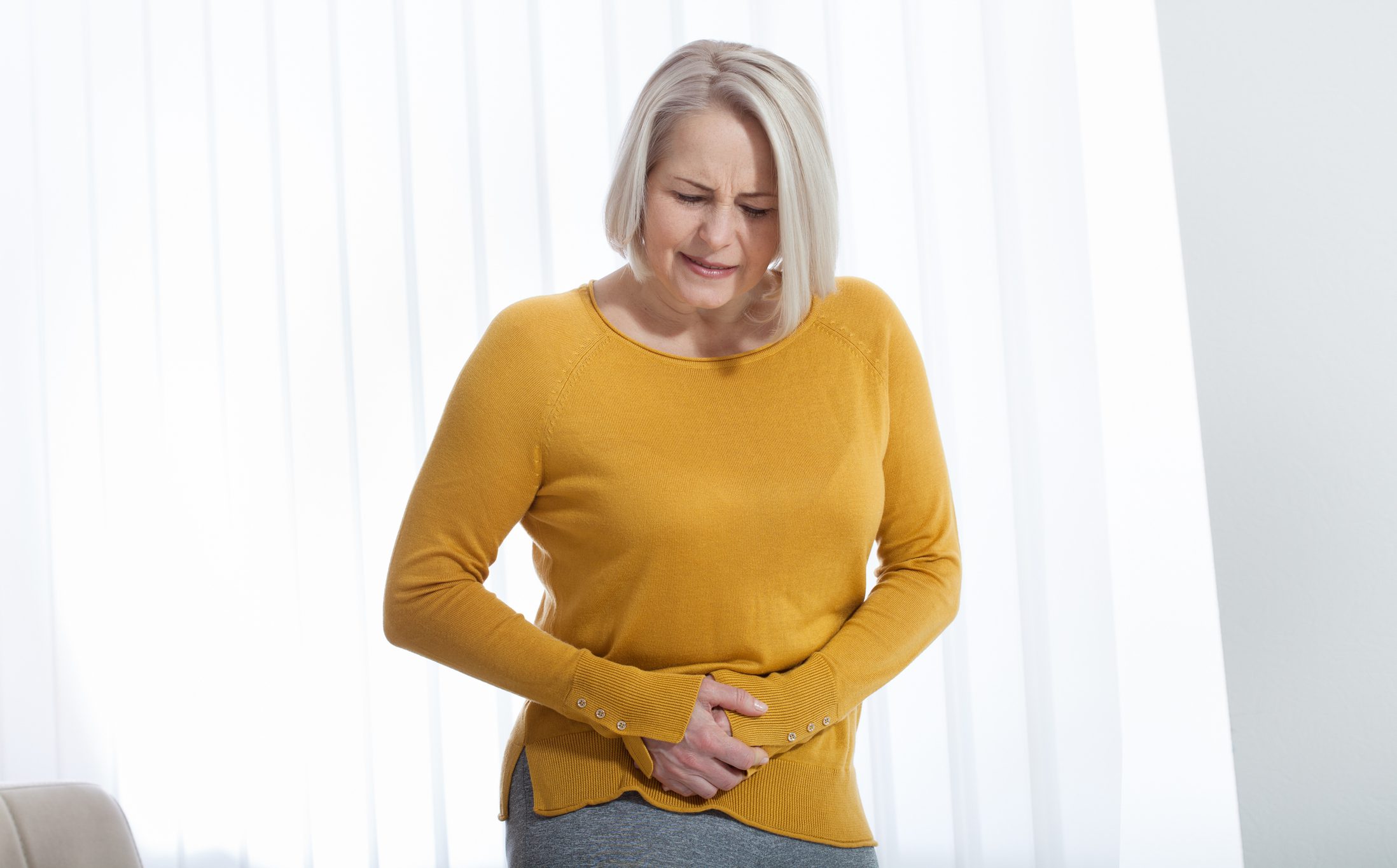After decades in the health and wellness industry, there is one element of health I prioritize above all else—sleep. Without consistent, quality rest, you simply can’t thrive.
The evidence backs me up on this. Researchers found that just one night of tossing and turning is enough to impact your mood and performance the next day.1
And several nights of bad Zzzs? It’s unfortunately well-documented that chronic poor sleep leads to or exacerbates debilitating conditions like cardiovascular disease,2 type 2 diabetes,3 mood and cognitive disorders,4,5 and weight gain.6
But while I know how important sleep is, I also know firsthand how difficult it can be to achieve that rest. I’m not a naturally great sleeper, and I’m definitely not immune to the daily stressors and pressures that can make snoozing a real chore.
And now—as if we needed it—there’s another thing holding back our sleep. It’s blue light, that ubiquitous glow from all of our screens and artificial lighting. It has a giant impact on our rest in ways you might not even realize.
What Is Blue Light?
Blue light is just what it sounds like—visible light that is reflected back to us in what we understand to be a shade of blue.
Blue light is everywhere. Back in the day, the primary source of blue light was the sun.
When the sun gives you moderate amounts of blue light during the day, it can be super beneficial. It helps stimulate the production of hormones that elevate your mood and alertness, giving you the focus you need to tackle the day.7
You’ve probably felt this in action—once you peel back those blackout curtains or step outside to walk the dog in the morning, you might have felt something click “on” in your brain, shifting your circadian rhythm towards a more active state.
But the sun isn’t the only source of blue light anymore. It’s emitted from TV, computer, and phone screens, as well as artificial lighting like fluorescent and LED bulbs.
That means if you’re anything like the majority of Americans, who spend time in fluorescent-lit offices and spend all day looking at a computer (then go home to watch TV or scroll on a phone), you’re now being exposed to more blue light in closer proximity than ever before.
What Does Blue Light Do to My Sleep?
That exposure is doing a number on sleep in a few different ways. Let’s break down why too much blue light exposure can hurt your sleep.
Blue Light Suppresses Melatonin Production
Your body relies on serotonin and melatonin hormone production to operate. During the day, light helps trigger the release of serotonin, helping you feel alert and ready to take on the day.
Then, when the sky darkens at night, your brain knows to start releasing melatonin, the hormone that helps you relax and get sleepy so your body can get the rest it needs to recharge.
This natural sleep-wake cycle based on the light of day and the darkness of night is called your circadian rhythm, and going against it—like eating after dinnertime, for instance—can seriously disrupt your sleep, and your overall health.8
Any kind of light exposure during nighttime hours can suppress your production of melatonin—that’s why places like casinos keep the lights glaring 24/7 so you’ll stay up all night spending money!
But blue light has shorter wavelengths than some other forms of light, and human eyes aren’t great at blocking them out on their own. The blue light can get all the way into your retina, suppressing melatonin far more powerfully than a more natural source of light like fire would.9
This means that every time you turn to a TV show hoping it will lull you to sleep, you’re actually sending a message to your body that it should hold off on producing the melatonin that will make you tired.
Blue Light Can Worsen Sleep Latency
I know what some of you are thinking—that you just can’t fall asleep without the TV glow or scrolling through social media under the covers. And while you may eventually drift off while blue light is on in your room, it’s in spite of that glare, not because of it.
The suppression of melatonin is actually worsening your sleep latency, meaning it’s taking you longer to fall asleep than it would if you were blue-light-free before bed.
One study looked at participants who read before bed. Some of them read e-readers with LED backlighting, and others used a physical, printed book.
Participants using the e-readers took longer to fall asleep than their counterparts. And not only that—their alertness the next morning was worse, too, showcasing how blue light impacts your entire sleep cycle and thus your overall health.10
Even if you think you’re doing something calming like reading before bed, it’s critical that you do so without the assistance of artificial blue light.
I’m one of those people who needs a little sleep assistance even after I take measures to limit my blue light and relax before bed. Sleep Candy™, a non-habit-forming formula of snooze helpers like melatonin, can help you gently doze off and wake up refreshed.*
How Can I Minimize My Blue Light Exposure?
So how can you ditch the blue light and get the quality rest your mind and body deserve?
Unfortunately, artificial blue light is a part of the world we live in now, so it’s impossible to totally evade it. But there are ways you can mitigate its threat to your sleep.
Here are some of the ways that have worked for me:
- Wear blue light glasses. There are tons of companies that make glasses with lens that block blue light from penetrating your eyes, minimizing your eye fatigue and impeding blue light’s ability to suppress melatonin.11 They don’t affect your vision, they just help keep the blue light out. And I’m not talking old granny glasses, either—my friends over at True Dark have the most stylish pairs, and you can get 10% off with my code JJ10.**
- Schedule screen-free time. It’s easy to talk about putting down the phone or swapping out a book for a TV show at night, but how often do you actually do it? I find I’m more likely to cross something off my to-do list if I put it there in the first place. Schedule 15 minutes here or 45 minutes there for a walk outside, an old-fashioned crossword puzzle in the newspaper, a night with a friend where you both promise not to grab your phone—just anything you love that’s away from the blue light!
- Keep screens out of your bedroom. A whopping 90% of Americans use a device before bedtime. Join the 10%—I promise that whatever is on your phone will still be there in the morning. Ideally, you’d power off the screens at least an hour before bed. Then, head into a dimly lit room where you can unwind with screen-free mechanisms like a few relaxing yoga poses, a good (but not great!) book, or some journaling. If you really find that you need some type of noise to fall to sleep or drown out the sounds of a busy household or street, try a white noise machine or a sleep mask with Bluetooth headphones (connected to a phone in ANOTHER room!) to listen to something calming.
- Change your settings. If you’re using your device after it’s dark outside but before your bedtime (this can happen especially during winter months), switch the settings of your device to reduce the blue light it emits. It depends on the type of device you have, but typically under Settings or Display, you can find a setting titled something like Night Mode or Blue Light Reduction. This isn’t a perfect solution, and I still want you to keep the screens out of your face in the hour before bed. But this can help ease the transition from day to night and keep your circadian rhythm humming as it should.
Getting a Great Night’s Rest
Trust me—I know how tough it can be to resist the siren song of devices when you’re trying to sleep. But try it for a few days and see how much better you feel when you wake up refreshed. Like anything that isn’t easy, it will be worth it.
Want more hot tips on getting the absolute best rest? Try my Best Rest Sleep Cheat Sheet! Just because you’re a poor sleeper now doesn’t mean it can’t change. My insider tools and tricks can turn your nights around, giving you the sweet dreams and morning smiles you never thought possible.
*These statements have not been evaluated by the Food & Drug Administration. Products mentioned are not intended to diagnose, treat, cure, or prevent any disease. The views in this blog by JJ Virgin should never be used as a substitute for professional medical advice. Please work with a healthcare practitioner concerning any medical problem or concern.
**I couldn’t make it without supportive relationships, and I bet you feel the same! That’s why my team and I offer you products and services we believe in. If you happen to purchase something I recommend here, I may receive some kind of compensation. However, I only bring you partners whose content and core values will serve you with the same commitment to excellence my team and I strive for every day. Please be in touch with any concerns.
Sources
- Lee S. (2022). Naturally Occurring Consecutive Sleep Loss and Day-to-Day Trajectories of Affective and Physical Well-Being. Annals of behavioral medicine : a publication of the Society of Behavioral Medicine, 56(4), 393–404. https://doi.org/10.1093/abm/kaab055
- Cappuccio, F. P., Cooper, D., D'Elia, L., Strazzullo, P., & Miller, M. A. (2011). Sleep duration predicts cardiovascular outcomes: a systematic review and meta-analysis of prospective studies. European heart journal, 32(12), 1484–1492. https://doi.org/10.1093/eurheartj/ehr007
- Cappuccio, F. P., D'Elia, L., Strazzullo, P., & Miller, M. A. (2010). Quantity and quality of sleep and incidence of type 2 diabetes: a systematic review and meta-analysis. Diabetes care, 33(2), 414–420. https://doi.org/10.2337/dc09-1124
- Alvaro, P. K., Roberts, R. M., & Harris, J. K. (2013). A Systematic Review Assessing Bidirectionality between Sleep Disturbances, Anxiety, and Depression. Sleep, 36(7), 1059–1068. https://doi.org/10.5665/sleep.2810
- Bubu, O. M., Brannick, M., Mortimer, J., Umasabor-Bubu, O., Sebastião, Y. V., Wen, Y., Schwartz, S., Borenstein, A. R., Wu, Y., Morgan, D., & Anderson, W. M. (2017). Sleep, Cognitive impairment, and Alzheimer's disease: A Systematic Review and Meta-Analysis. Sleep, 40(1), 10.1093/sleep/zsw032. https://doi.org/10.1093/sleep/zsw032
- Patel, S. R., Malhotra, A., White, D. P., Gottlieb, D. J., & Hu, F. B. (2006). Association between reduced sleep and weight gain in women. American journal of epidemiology, 164(10), 947–954. https://doi.org/10.1093/aje/kwj280
- Vandewalle, G., Maquet, P., & Dijk, D. J. (2009). Light as a modulator of cognitive brain function. Trends in cognitive sciences, 13(10), 429–43 https://doi.org/10.1016/j.tics.2009.07.004
- Jagannath, A., Taylor, L., Wakaf, Z., Vasudevan, S. R., & Foster, R. G. (2017). The genetics of circadian rhythms, sleep and health. Human molecular genetics, 26(R2), R128–R138. https://doi.org/10.1093/hmg/ddx240
- Gooley, J. J., Chamberlain, K., Smith, K. A., Khalsa, S. B., Rajaratnam, S. M., Van Reen, E., Zeitzer, J. M., Czeisler, C. A., & Lockley, S. W. (2011). Exposure to room light before bedtime suppresses melatonin onset and shortens melatonin duration in humans. The Journal of clinical endocrinology and metabolism, 96(3), E463–E472. https://doi.org/10.1210/jc.2010-2098
- Chang, A. M., Aeschbach, D., Duffy, J. F., & Czeisler, C. A. (2015). Evening use of light-emitting eReaders negatively affects sleep, circadian timing, and next-morning alertness. Proceedings of the National Academy of Sciences of the United States of America, 112(4), 1232–1237. https://doi.org/10.1073/pnas.1418490112
- Sasseville, A., Paquet, N., Sévigny, J., & Hébert, M. (2006). Blue blocker glasses impede the capacity of bright light to suppress melatonin production. Journal of pineal research, 41(1), 73–78. https://doi.org/10.1111/j.1600-079X.2006.00332.x






